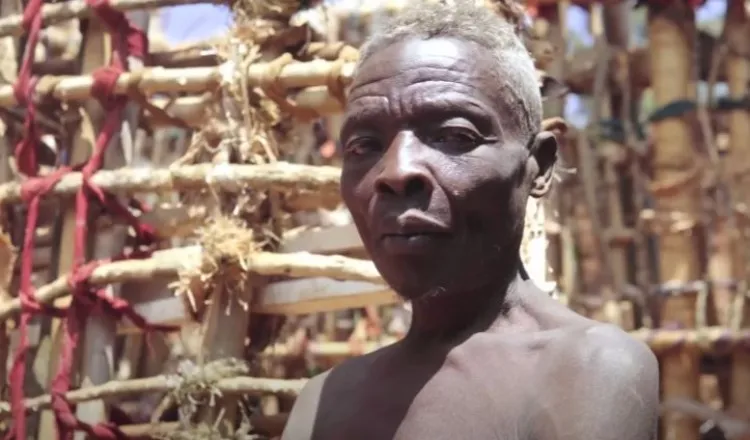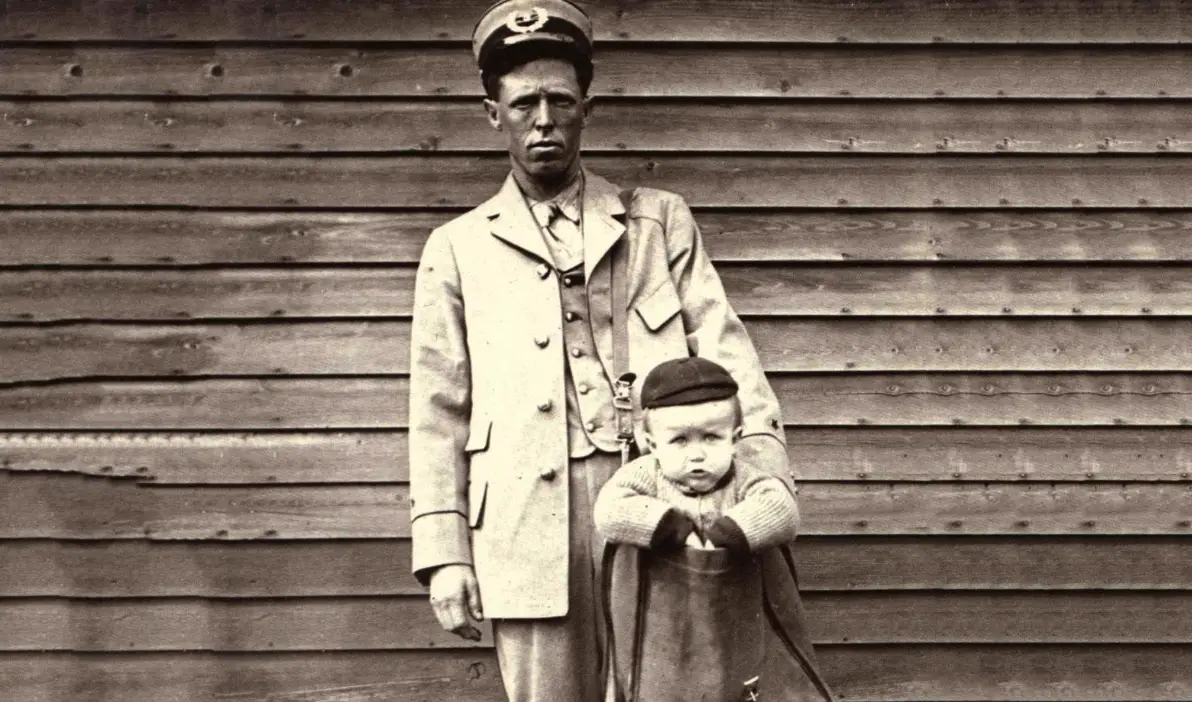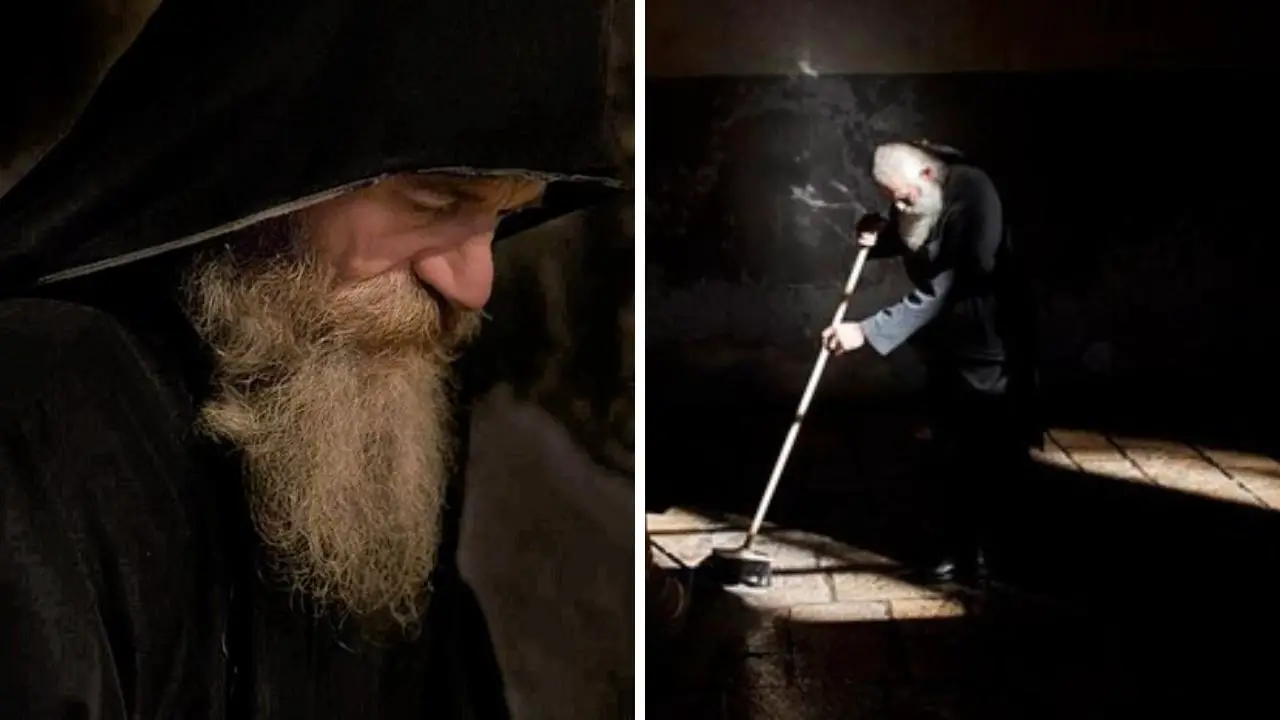African Man has been Living in Isolation for 55 Years due to His Fear of Women

KIGALI, Rwanda — Imagine waking up every day with your heart racing at the mere sight of a woman. For Callitxe Nzamwita, a 71-year-old man from Rwanda, this isn’t a nightmare scenario—it’s his reality.
For over five decades, Nzamwita has lived in complete isolation, barricaded within the walls of his small, secluded home, all because of an overwhelming fear of women, a condition known as gynophobia.
At just 16 years old in 1968, Nzamwita reached a breaking point. “It was like a constant shadow hanging over me,” he shared during a rare interview with Afrimax, an African media company that brought his story to light in August 2023.
“The idea of interacting with women was unbearable. I couldn’t explain it, but I knew I had to escape.”
Nzamwita’s decision to isolate himself led to the construction of his unique abode, enclosed by a towering 15-foot wooden fence.
“At first glance, you might think the house is abandoned,” a neighbor remarked.
“But inside, it’s surprisingly functional. He’s managed to create a livable space with very limited resources.”

Stepping into the house reveals a compact yet efficient setup tailored for solitary living. There are no distinct areas for a kitchen, bedroom, or bathroom.
Instead, Nzamwita has ingeniously maximized every inch to serve multiple purposes.
His bed, a simple structure of bamboo-like wooden rods resting on a wooden base, is adorned with a pile of leaves and a mishmash of old clothes and bedsheets.
“It’s unconventional, but it works for him,” said another neighbor who prefers to remain anonymous.
Perhaps the most striking aspect of his living space is the unconventional pillow, a blend of natural materials: a wooden mat, a bundle of leaves for support, and some old clothes.
Even the restroom is strategically placed near his bed, a practical choice in his confined living quarters.
The kitchen, though intricately situated, is seamlessly integrated into the limited space, ensuring that every essential is within reach.

Living in such isolation might seem unimaginable to many, but Nzamwita’s story is a testament to the extremes of human behavior driven by phobias.
Gynophobia, the fear of women, is a rare and specific phobia. While many are familiar with more common fears like heights or spiders, gynophobia is less understood and even less common, particularly among men.
Studies suggest that the lifetime prevalence of gynophobia is about 4.9% in men and 9.8% in women globally, making Nzamwita’s condition exceptionally rare.
“Gynophobia is often rooted in past negative experiences or environmental factors,” Dr. Amina Kibirige, a psychologist specializing in phobias, explained.
“In Nzamwita’s case, the exact cause remains unclear, but it’s possible that a traumatic event or a series of unfortunate interactions may have triggered his intense fear.”

Despite his seclusion, Nzamwita is not entirely cut off from society. The women in his neighborhood have shown remarkable kindness and understanding.
“They throw food and essential items into his yard, and he collects them without any direct contact,” one neighbor shared.
This silent exchange speaks volumes about the community’s compassion and respect for his boundaries.
“Nzamwita’s life is a delicate balance between fear and necessity,” another resident commented.
“They’ve found a way to coexist peacefully, without forcing interactions that would trigger his anxiety.”
The man’s solitary existence has sparked conversations online, with many people expressing both sympathy and bewilderment.
“It’s hard to fathom living like that,” tweeted one netizen. “But it’s important to remember that mental health issues can lead to extreme measures. Hope he finds some peace.”

Others have taken a more critical stance, questioning the long-term effects of such isolation.
“Living alone for 55 years can take a severe toll on anyone’s mental health,” another social media post read. “I hope he gets the help he needs.”
Nzamwita’s story also raises broader questions about mental health support in Rwanda and similar regions.
Access to psychological care and understanding of rare phobias can be limited, leaving individuals like him to fend for themselves.
“There’s a stigma attached to mental health issues here,” Dr. Kibirige noted. “People often hide their struggles out of fear of judgment, which can lead to situations like Nzamwita’s.”
Despite the challenges, Nzamwita has managed to maintain a semblance of normalcy within his confined space.
He grows some of his own food and has adapted to his environment in ways that many would find resourceful.
“He’s a survivor,” said Afrimax’s reporter who spent time documenting his life. “Despite everything, he’s carved out a life for himself, no matter how unconventional.”

Interestingly, Nzamwita’s story has also caught the attention of mental health professionals and researchers worldwide.
“Cases like his are rare, but they provide valuable insights into the complexities of phobias,” Dr. Kibirige added.
“Understanding his condition could help in developing better treatment methods for others suffering from similar fears.”
The isolation has not entirely stripped Nzamwita of his humanity. He engages in activities that keep him mentally active, such as reading and crafting simple tools.
“He’s found ways to keep his mind sharp,” a neighbor observed. “Even in isolation, he’s not completely disconnected from the world.”
Nzamwita’s minimalistic lifestyle is both a necessity and a choice. The absence of distinct rooms or lavish furnishings reflects a life stripped down to its bare essentials, dictated by his phobia.
“Every item has a purpose,” he explained. “I don’t need more than what I have.”
Despite the harshness of his living conditions, there’s a sense of resilience that permeates his story.
“He’s been through a lot,” one close acquaintance mentioned. “But he’s managed to survive and adapt in his own way.”
However, the long-term implications of such prolonged isolation cannot be overlooked.
WATCH!
Experts warn that social isolation, especially over such an extended period, can lead to various psychological issues, including depression and cognitive decline.
“While Nzamwita has adapted to his circumstances, it’s important to address the root cause of his phobia,” Dr. Kibirige emphasized. “Without proper treatment, the cycle of fear and isolation is likely to continue.”
The community’s role in supporting Nzamwita cannot be understated.
Their respectful distance and thoughtful assistance have allowed him to maintain his chosen lifestyle without escalating his fears.
“They understand his boundaries and honor them, which is crucial for his well-being,” Afrimax’s reporter noted.
In a world that increasingly values social connections and community, Nzamwita’s life stands as a stark contrast.
His story challenges us to think about the lengths to which fear can drive an individual and the importance of empathy and support for those grappling with mental health issues.
“It’s a reminder that everyone has their own battles,” a neighbor reflected. “Sometimes, the battles aren’t visible, but they’re just as real.”



































